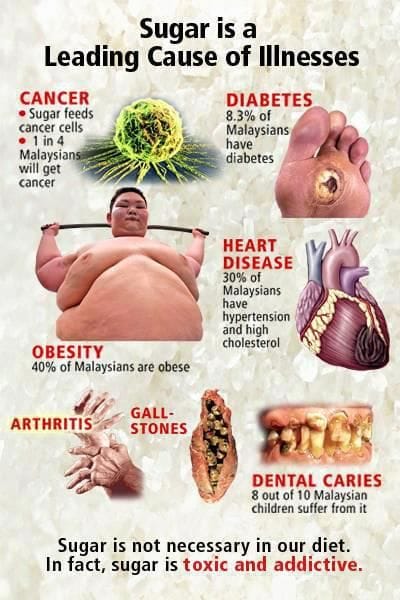The relationship between the consumption of added sugars and the risk of chronic diseases has been a topic of discussion for decades. A recent study has unveiled that some sources of added sugar might be worse than others in terms of contributing to the menace of preventable diseases such as type 2 diabetes, cardiovascular diseases, and obesity. This study adds credence to the growing body of literature that advocates for healthier choices when it comes to our consumables.
The study compared the consumption levels of added sugars from different sources among more than 70,000 women in the United States aged 30-54. By tracking the participants for 20 years, researchers were able to gather comprehensive data about the health risks posed by different forms of added sugars. When separating the sources of added sugars – specifically looking at consumption from sugars sweetened beverages, sweet baked goods, and candy – the health risks proved to be comparatively more alarming.
The sources of added sugars that are contributing the most to the increase in chronic diseases aren’t a mystery anymore. Sugars sweetened beverages, largely contributed to by sodas, energy drinks, and fruit drinks, emerged as the principal culprit. In the study, they were found to be responsible for a considerably bigger slice of the health hazards. For instance, women who consumed one can of sugar-sweetened soda per day faced an increased risk of type 2 diabetes as much as a woman who smoked about a half a pack of cigarettes daily.
Sweet baked goods, including cookies, cakes, pies, and other sugary confections, came in second on the list. The irregular patterns in the intake of these products made it harder for the study to nail down a precise effect on diseases. However, the consequences linked to sweets and baked goods were palpable although not as striking as those of sugar-sweetened beverages.
Candy, which was expectedly the third in line in terms of added sugar sources, also contributed to the overall health risks. In the study, increased consumption quantities of candies like sweets and chocolate showed a notable correlation with the risks of chronic diseases.
These findings, although not surprising to health experts, bring into question the significance of focusing on the products that deliver added sugars instead of emphasizing the entire category of ‘added sugars.’ We’ve always known that sugars, when taken in excess, can facilitate inflammation, spike insulin levels, and increase body fat. But linking daily consumption of sugary products to specific chronic diseases delivers a clearer picture of the dangers of certain sources of added sugars.
Especially of concern is the fact that added sugars are ubiquitous in processed and pre-packaged foods, with the majority of Americans consuming more than the recommended limit of added sugars. It’s not only sugars-sweetened beverages that are at play. The vast majority of packaged foods and even some sneaky sources like sauces, peanut butter, and even breakfast cereals have more added sugar than we realize.
Of course, individual factors such as genetics, physical activity levels, and even socio-economic status influences one’s vulnerability to health risks posed by added sugars. Personal choices regarding the types of foods we consume play a significant role in diminishing the threat.
This study bolsters the argument that access to accurate and clear nutrition information should be a priority, and also elucidates the importance of complete food reform – a pressing matter overlooked by many policymakers. It’s time that people’s initiatives towards health are fostered by offering them choices that have less added sugar and are healthier, without veiling the deceptively sweet hazards.



